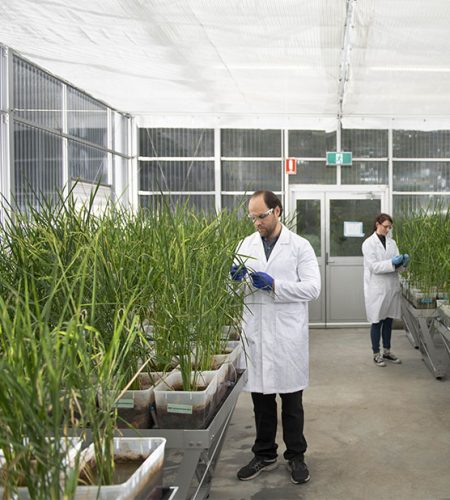Professor Terry Rose
Project Leader
Southern Cross University
Crop diversity in major cropping systems in Australia is limited, yet diversity in farming systems is recognised for providing multiple benefits including resilience, weed and disease suppression and improved soil health. To reverse the decline in species diversity in cropping, this project will identify rotations that enable profitable integration of a range of species into farming systems.
This project will determine how soil performance and profitability are affected by increased crop diversity in rotational systems in both broadacre grains and sugarcane industries. It will investigate the potential for plant-based solutions to improve soil performance through rhizosphere modification.
In glasshouse and small plot trials, the project will identify differences in root exudation and rhizodeposition, and root depth and distribution, between various crop types and link these to changes in soil biology, porosity and nutrient cycling. These ultimately contribute to the soil’s ability to sustain healthy, high yielding crops.
Long term (greater than 5 years) field experiments will assess the viability of integrating diverse species into the system as winter rotation crops, summer cover crops or perennial legumes depending on the constraints of climate, soils and weeds. Long-term field trials are essential as it has been established that outcomes from rhizosphere re-engineering are not immediate and improvements in productivity and resilience are not seen in short-term experiments.
The project will involve direct adoption of agronomic practices by Grower Group networks and beyond which will deliver improved soil health, increased soil resilience to stressors and improved farm profitability.
The impact of the project will be enhanced soil resilience leading to more profitable and sustainable grain and sugarcane farming systems through the use of diverse cropping rotations.

